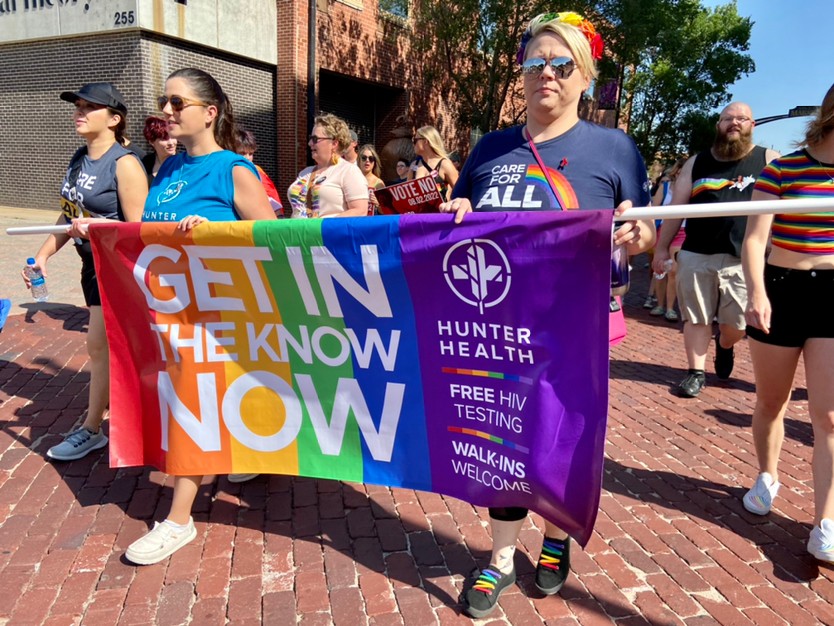Celebration, Recognition, and Advocacy for Inclusive Health
Pride Month is not only a time for celebration but also a period of reflection and advocacy. It is a moment to raise awareness about the issues that the LGBTQ+ community continues to face, particularly in the world of healthcare. As we commemorate this significant month, we also acknowledge the vital work of healthcare institutions in supporting the health and wellbeing of the LGBTQ+ community.
Hunter Health is among those who champion equality and inclusivity through our comprehensive healthcare services, which include a strong focus on mental health. These services are delivered in an affirming and respectful environment, offering solace to many LGBTQ+ individuals who, unfortunately, still face discrimination and lack of understanding in many areas of their lives. In the spirit of Pride Month, we reflect on the importance of such supportive environments and the difference they make in the lives of LGBTQ+ individuals.
Mental Health and the LGBTQ+ Community
Recent research underscores the vital role that supportive healthcare providers like Hunter Health play in the lives of LGBTQ+ individuals. The Trevor Project’s 2023 U.S. National Survey on the Mental Health of LGBTQ Young People revealed some alarming statistics about the mental health challenges faced by this community. A staggering 41% of LGBTQ young people reported seriously considering suicide in the past year, with those who are transgender, nonbinary, and/or people of color reporting even higher rates. Additionally, 56% of LGBTQ young people who sought mental health care were unable to access it.
Tara Nolen, Community Health Manager, shared some thoughts on the importance of Pride Month: “Pride is a time of celebration, but it’s also a time of reflection and recognition of the struggles and challenges the LGBTQ+ community faces. It’s a time to uplift voices, to advocate for rights, and to stand together in solidarity.” Her words resonate strongly in light of the survey’s findings.
Furthermore, the survey revealed the importance of acceptance and affirmation in reducing suicide rates. Transgender and nonbinary young people who reported that their pronouns were respected by all the people they lived with had lower rates of suicide attempts. Yet, less than 40% of LGBTQ young people found their home to be LGBTQ-affirming, and only about half of transgender and nonbinary young people found their school to be gender-affirming.
Tara further explained: “We need to strive for a world where everyone can feel accepted and safe. It’s important to foster environments where people are free to express their identities without fear of judgment or discrimination.”
Facing these challenges through quality, inclusive care
In light of these alarming findings, it’s clear that care providers like Hunter Health play a critical role in providing necessary support to the LGBTQ+ community. By offering comprehensive healthcare services, including behavioral health services, in an inclusive and affirming environment, they provide a safe haven for LGBTQ+ individuals who may face discrimination or lack of understanding elsewhere.
But the work of Hunter Health extends beyond our healthcare services. We are deeply committed to community engagement with pride, a commitment that is evident in our participation in local events. This year, we will once again take part in Wichita’s Pride Festival. This event kicks off with a parade and takes place in and around Century II. It is free and open to all, and we’re proud to take part in the event and help provide critical health services through inclusivity and community engagement.
As we celebrate Pride Month, it’s important to recognize the work of care providers in supporting the LGBTQ+ community. Their unwavering dedication to promoting inclusivity and providing vital health services serves as a model for other providers. By standing as a beacon of support, organizations like ours are contributing to a future where everyone, regardless of their sexual orientation or gender identity, is treated with respect and dignity.


